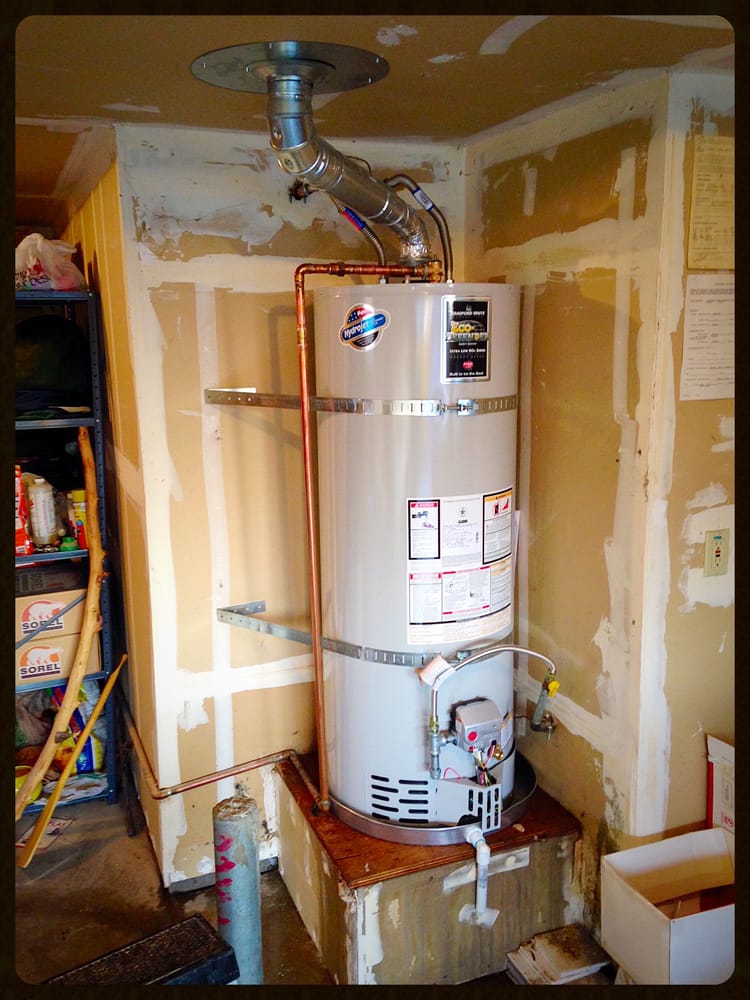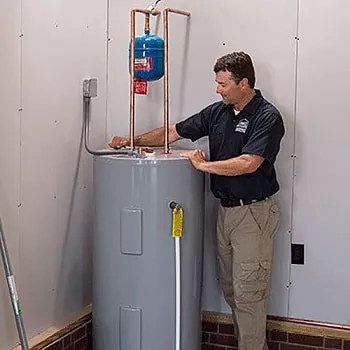Expert Water Heater Installation Services for Efficient Home Heating
Expert Water Heater Installation Services for Efficient Home Heating
Blog Article
Full Guide to Water HeaterSetup and Substitute
Recognizing the complexities of water heating system installation and substitute is crucial for house owners looking for to guarantee performance and reliability in their warm water supply. From selecting the ideal type and dimension to carrying out a smooth installment process, numerous aspects need to be taken into consideration to avoid usual pitfalls. This guide will offer you with the needed actions and understandings to navigate the complexities of this home enhancement task, while likewise highlighting critical upkeep methods that can extend the life of your system. As you check out these elements, you might locate on your own reassessing your current setup and identifying areas for renovation.
Kinds Of Water Heating Systems
When taking into consideration hot water heater setup and replacement, it is vital to recognize the various kinds of hot water heater offered out there. The most common kinds include tank hot water heater, tankless hot water heater, warmth pump hot water heater, and solar hot water heater.
Tank water heating units are conventional systems that save a certain quantity of warm water, making them easily offered when required. In comparison, tankless water heating systems offer warm water on need, getting rid of the requirement for storage space.
Heatpump hot water heater utilize power to transfer warm from the air or ground to warmth water, offering significant energy financial savings but needing even more room and certain installation conditions. Finally, solar hot water heater harness solar power to heat water, offering an environmentally friendly choice with prospective lasting price financial savings, although they typically need a back-up system for over cast days.
Comprehending these choices makes sure educated choices relating to setup and substitute, dealing with specific needs and preferences.
Picking the Right Dimension
Choosing the ideal size for a water heater is essential to make sure optimum efficiency and performance. An unit that is too small will certainly battle to fulfill house needs, causing irregular warm water availability and raised power consumption. On the other hand, an oversized water heater can cause unneeded power waste and higher utility expenses.
To determine the appropriate dimension, take into consideration the family's optimal warm water usage. This can be computed based upon the number of residents and their typical warm water needs. For instance, a family of 4 might call for a hot water heater with an ability of 50 to 80 gallons, depending upon the usage patterns, such as synchronised showers and washing.
In addition, evaluate the recovery price, which gauges just how promptly a heating unit can restore warm water after it has been used. For tankless versions, concentrate on the flow rate, gauged in gallons per minute (GPM), to ensure it fulfills the family's simultaneous need.

Installment Refine Overview

Next, the old system has to be separated and gotten rid of, taking treatment to adhere to regional codes and laws concerning disposal. When the old unit is out, the brand-new hot water heater can be positioned in position. This action entails attaching the water supply lines, ensuring that all installations are check that secure and leak-free.
After establishing water connections, it's vital to connect the power supply, whether electric or gas, adhering to the producer's guidelines diligently. When all connections are made, the system must be full of water, and the power can be turned back on. Lastly, it is essential to examine for leakages and make sure the hot water heater is working properly before finishing the setup process.
Common Setup Blunders

Another regular error is disregarding to comply with regional codes and policies. Stopping working to stick to these criteria can not only lead to security risks however might also result in pricey fines or the need for pricey reinstallation.
Stopping working to protect links or utilizing the wrong kind of installations can lead to leakages and water damages. By staying clear of these typical installation blunders, homeowners can guarantee their water heater operates securely and successfully, taking full advantage of efficiency and durability.
Maintenance Tips for Longevity
Proper maintenance of a hot water heater is important for its longevity and ideal efficiency. Regular examinations and servicing can protect against expensive repairs and expand the device's lifespan. Begin by examining the temperature level setting; it must typically be established in between 120 ° F and 140 ° F for optimum energy efficiency and safety and security.
Every 6 months, purge the storage tank to eliminate debris buildup, which can impair home heating efficiency and create deterioration. To do this, shut off the heating unit, connect a hose pipe to the drainpipe valve, and allow the water run up until it is clear.
Anode poles should be inspected yearly and changed when they are corroded. These rods help prevent container corrosion by drawing in destructive why not try this out components in the water.
Additionally, examine the stress safety valve on a regular basis to ensure it about his is operating appropriately. This valve is important for stopping extreme pressure accumulation within the container.
Finally, consider arranging a professional maintenance check every couple of years for extensive assessments and maintenance. By adhering to these upkeep tips, property owners can substantially improve the efficiency, security, and life expectancy of their water heating units, making sure trusted warm water for several years to find.
Final Thought
In verdict, appropriate installment and upkeep of water heating units are vital for making sure performance and longevity. By recognizing these crucial aspects, property owners can accomplish a trustworthy hot water supply while minimizing potential problems related to water heater operation.
Comprehending the intricacies of water heater installment and replacement is important for homeowners seeking to guarantee efficiency and integrity in their warm water supply.Container water heaters are standard systems that save a specific volume of warm water, making them conveniently available when needed. In contrast, tankless water heating systems provide hot water on need, eliminating the requirement for storage. Choosing a water heating unit that is either too small or too big can lead to inadequacies, resulting in inadequate warm water supply or extreme power intake.
By understanding these essential aspects, homeowners can attain a dependable warm water supply while reducing possible concerns related to water heater operation. drain cleaning.
Report this page